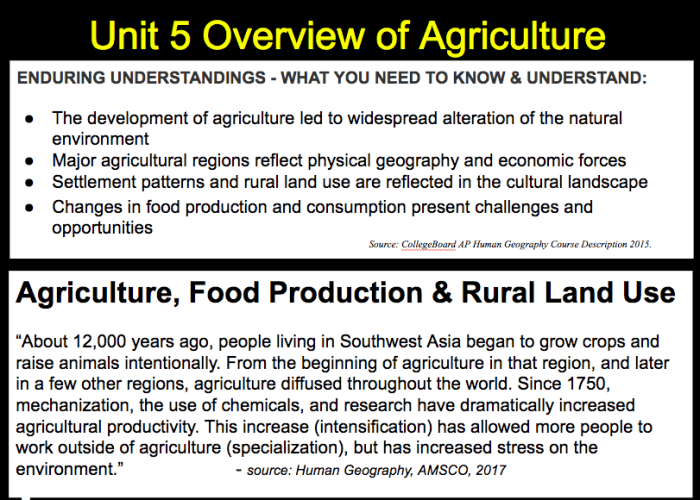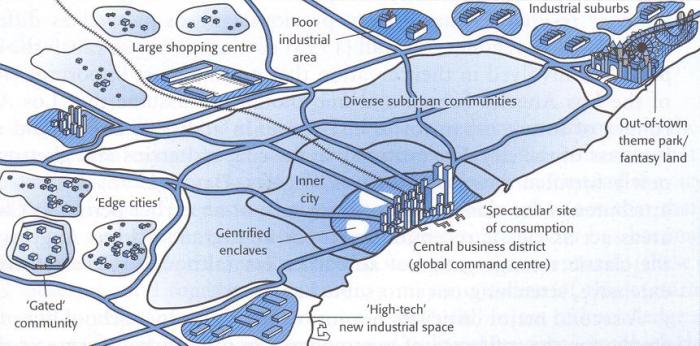Embark on a journey of academic triumph with the APHG Unit 5 Practice Test, an indispensable tool designed to elevate your understanding and prepare you for excellence in the actual exam. This practice test is your gateway to unlocking your full potential and achieving your educational aspirations.
Delve into the intricacies of human geography, exploring the diverse tapestry of cultures, environments, and global issues that shape our world. The APHG Unit 5 Practice Test provides a comprehensive assessment of your knowledge, empowering you to identify areas for improvement and solidify your grasp of the subject matter.
Understanding the APHG Unit 5 Practice Test
The APHG Unit 5 Practice Test is an essential tool for students preparing for the AP Human Geography exam. This practice test simulates the actual exam format and provides an opportunity to assess your understanding of the course material. By taking the practice test, you can identify areas where you need further review and gain valuable insights into the types of questions that will be asked on the exam.
Benefits of Taking the Practice Test
There are several benefits to taking the APHG Unit 5 Practice Test:
-
-*Identify areas of weakness
The practice test helps you pinpoint areas where you need additional study and review.
-*Familiarize yourself with the exam format
The practice test follows the same format as the actual exam, giving you a preview of what to expect.
The APHG Unit 5 practice test is a great way to prepare for the exam. If you’re looking for more practice, you can also check out the catcher in the rye exam . The catcher in the rye exam is a bit different from the APHG Unit 5 practice test, but it still covers some of the same material.
So, if you’re feeling confident about the APHG Unit 5 practice test, you should be able to do well on the catcher in the rye exam as well.
-*Improve your time management skills
The practice test allows you to practice managing your time effectively during the exam.
-*Build confidence
By performing well on the practice test, you can boost your confidence and reduce anxiety on exam day.
Content Coverage of the Practice Test
The APHG Unit 5 Practice Test comprehensively assesses students’ understanding of key concepts and topics related to the geography of agriculture, food production, and rural land use. It covers a wide range of content, including:
Agricultural Systems and Land Use
- Types of agricultural systems (e.g., subsistence, commercial, industrial)
- Factors influencing agricultural land use (e.g., climate, soil, topography)
- Land use conflicts and challenges
Food Production and Distribution
- Major food crops and their global distribution
- Challenges to food production (e.g., climate change, population growth)
- Food security and hunger issues
Rural Land Use and Settlement Patterns
- Types of rural settlements (e.g., villages, towns, hamlets)
- Factors influencing rural settlement patterns (e.g., economic activity, transportation)
- Challenges facing rural communities (e.g., depopulation, economic decline)
Question Types and Difficulty Level
The practice test encompasses a diverse range of question types, catering to the varying cognitive skills required for AP Human Geography. These questions are meticulously crafted to mirror the actual exam, ensuring a comprehensive assessment of students’ understanding of the subject matter.
The difficulty level of the questions is carefully calibrated to provide a balanced challenge. Basic questions test foundational knowledge, while more challenging questions delve into complex concepts and require higher-order thinking skills. This gradation allows students to assess their strengths and weaknesses and identify areas for improvement.
Multiple Choice Questions
Multiple choice questions constitute the majority of the practice test. They present students with a scenario or question followed by several possible answers. Students must analyze the information and select the best answer from the options provided. These questions assess students’ ability to comprehend the material, identify key concepts, and apply their knowledge to real-world situations.
Free Response Questions
Free response questions require students to provide written answers that demonstrate their understanding of the material. These questions range from short answer to essay format. They assess students’ ability to organize their thoughts, articulate their ideas clearly, and support their arguments with evidence from the course material.
Document-Based Questions
Document-based questions present students with a historical document, map, graph, or other primary source. Students must analyze the document and answer questions related to its content and historical context. These questions assess students’ ability to interpret primary sources, extract relevant information, and draw informed conclusions.
Spatial Reasoning Questions
Spatial reasoning questions require students to analyze maps, charts, and other visual representations of data. Students must interpret the information presented and draw conclusions about the spatial relationships between different geographic features. These questions assess students’ ability to visualize geographic concepts and understand the connections between human activities and the environment.
Time Management and Test-Taking Strategies
Time management is crucial during the practice test as it simulates the actual AP Human Geography exam. Effective time allocation ensures you complete all sections and questions within the given time frame.
Strategies for Effective Time Allocation
-
-*Prioritize Questions
Focus on answering easier questions first to build confidence and save time for more challenging ones.
-*Scan the Test
Before starting, scan the entire test to get an overview of the questions and their distribution.
-*Allocate Time Wisely
Divide the total time available by the number of questions to estimate the time you can spend on each.
Techniques for Approaching Different Question Types, Aphg unit 5 practice test
-
-*Multiple Choice
Read the question carefully, identify s, and eliminate obviously incorrect options first.
-*Short Answer
Be concise and provide specific evidence from the provided sources.
-*Free Response
Organize your thoughts, develop a clear thesis statement, and support your arguments with relevant examples.
Scoring and Interpretation of Results

The practice test employs a scoring system that mirrors the actual APHG Unit 5 Exam. Each question is assigned a specific number of points based on its difficulty and the depth of understanding it requires. After completing the test, you will receive a raw score, which is the total number of points earned.
This raw score is then converted into a scaled score, which ranges from 1 to 5, with 5 being the highest possible score.
To interpret your test results effectively, begin by reviewing your raw score. A high raw score indicates a strong understanding of the concepts covered in Unit 5, while a lower raw score suggests areas where further review is necessary. Next, analyze your performance on individual questions.
Identify questions that you answered correctly and those that you answered incorrectly. This will help you pinpoint your strengths and weaknesses, allowing you to focus your preparation efforts accordingly.
Using Results to Improve Preparation
The practice test results serve as a valuable tool for improving your preparation for the actual APHG Unit 5 Exam. By identifying your strengths and weaknesses, you can develop a targeted study plan that addresses areas needing improvement. For example, if you struggle with questions related to climate patterns, you may want to allocate more time to reviewing this topic.
Additionally, consider seeking additional resources such as textbooks, online materials, or tutoring to reinforce your understanding.
Additional Resources and Study Materials: Aphg Unit 5 Practice Test
Supplementing the practice test with additional resources and study materials can significantly enhance your understanding of the APHG Unit 5 content and improve your test-taking skills. These resources provide diverse perspectives, additional information, and practice opportunities that complement the official practice test.
- Textbooks and Course Notes:Review your textbook chapters and course notes related to Unit 5 topics. They provide a comprehensive foundation of the concepts and theories tested on the exam.
- Online Resources:Explore websites such as the College Board APHG website, Khan Academy, and Crash Course for videos, articles, and interactive simulations that present the material in engaging and accessible formats.
- Practice Tests:Take additional practice tests from reputable sources to familiarize yourself with the question types, time constraints, and overall structure of the exam.
- Study Groups and Online Communities:Join study groups or participate in online forums to connect with other students, discuss concepts, and clarify any doubts. Collaborative learning can enhance your understanding and provide diverse perspectives.
Support from Teachers, Tutors, and Experts
Seeking support from teachers, tutors, or experts in the field can be invaluable for your APHG preparation. They can:
- Provide personalized guidance and clarify specific concepts that you may struggle with.
- Offer tailored advice on test-taking strategies and time management techniques.
- Review your practice answers and provide feedback on areas for improvement.
FAQs
What is the purpose of the APHG Unit 5 Practice Test?
The APHG Unit 5 Practice Test is designed to assess your understanding of the concepts and skills covered in Unit 5 of the AP Human Geography course, helping you identify areas for improvement and prepare for the actual exam.
What types of questions are included in the practice test?
The practice test includes a variety of question types, including multiple choice, short answer, and essay questions, mirroring the format of the actual APHG Unit 5 Exam.
How can I use the results of the practice test to improve my preparation?
Analyze your results to identify areas where you excel and areas where you need additional support. Focus your studies on the concepts and skills you need to strengthen, and seek help from teachers, tutors, or online resources as needed.
